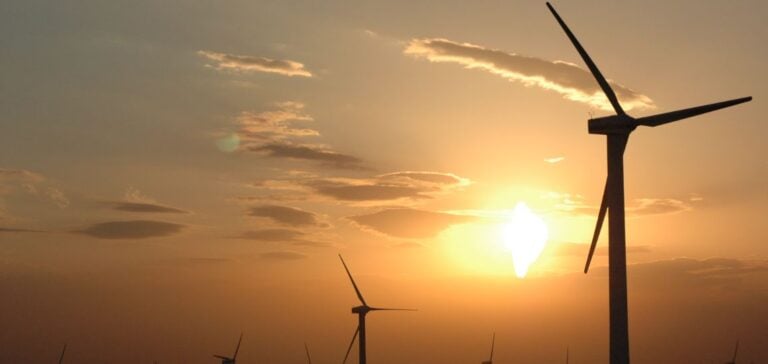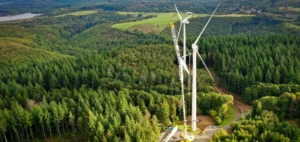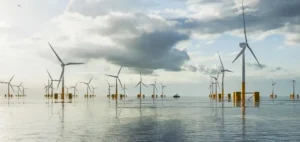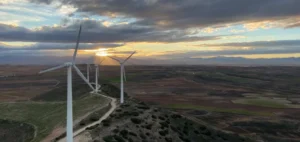Donald Trump, newly reinstated as U.S. President, has shaken the wind energy sector with his announcement of a moratorium on new wind farm developments. This policy shift, enacted through an executive order, has triggered significant declines in the stock prices of leading European players, reflecting market uncertainties about the future of renewable energy in the United States.
The decree, fulfilling a key campaign promise, halts the approval of any new wind energy projects during Trump’s term, with the aim of ceasing federal subsidies for the sector. Despite this policy shift, analysts highlight the pressing need for increased electricity production in the U.S., which could maintain demand for renewable energy over time.
Significant losses for industry leaders
Danish wind energy giant Ørsted faced the steepest drop, with shares plummeting 12.88% on the Copenhagen Stock Exchange. The company had also recently announced asset impairments totaling 12.1 billion Danish kroner (€1.6 billion), exacerbating investor concerns.
Other European industry players were also affected. In Frankfurt, Nordex, a wind turbine manufacturer, fell by 1.53%, while RWE, Germany’s leading electricity producer, saw its shares dip by 0.61%. In France, cable manufacturer Nexans, a key player in connecting offshore wind farms to terrestrial grids, declined by 0.98%. French energy giants Engie and TotalEnergies, both involved in U.S. offshore wind projects, recorded respective drops of 0.85% and 0.89%.
Mitigating factors amid strong demand
While the market response was pronounced, some industry analysts believe the long-term impact may be limited. “The demand for electricity in the U.S. is so high that the only projects capable of meeting it quickly are renewable ones,” explained a European industrialist. Renewable energy’s speed of deployment and cost advantages make it an indispensable part of the U.S. energy landscape, particularly given corporate decarbonization commitments.
According to the U.S. Department of Energy, wind energy accounted for 10% of the country’s electricity production in 2023. Projects already underway, initiated prior to the moratorium, may still proceed, though the political climate introduces heightened uncertainty for future developments.
Measured reactions from impacted companies
Responses from major industry players have been cautious. TotalEnergies and Engie, both with active U.S. offshore wind projects, declined to comment on the announcement. However, TotalEnergies CEO Patrick Pouyanné previously stated in November that he did not anticipate major disruptions to renewable energy initiatives under the Trump administration. Engie, which has three offshore wind projects in development representing an exposure of €400 million, appears to remain optimistic about their continuation.
The volatility stemming from this political move highlights the necessity for wind energy players to diversify their markets and adapt to shifting regulatory landscapes, particularly in the U.S.






















